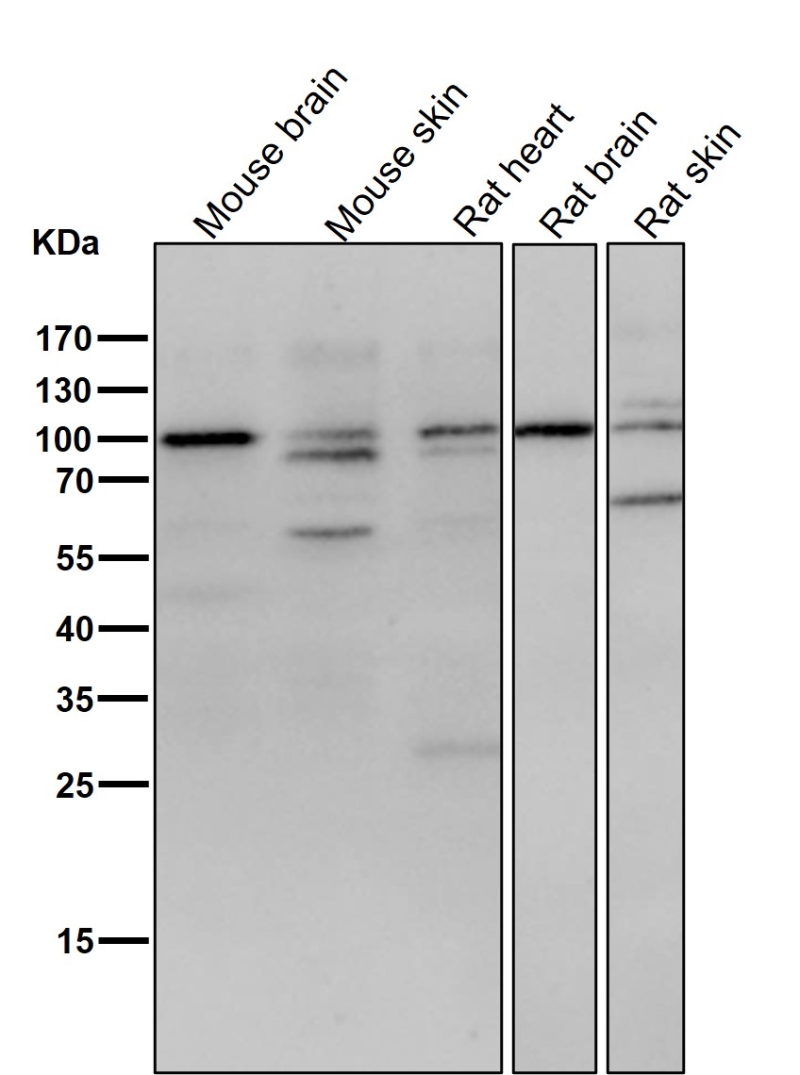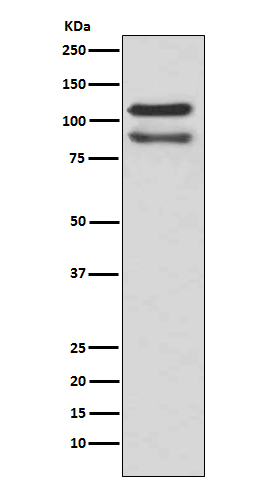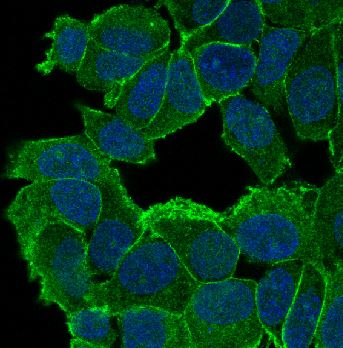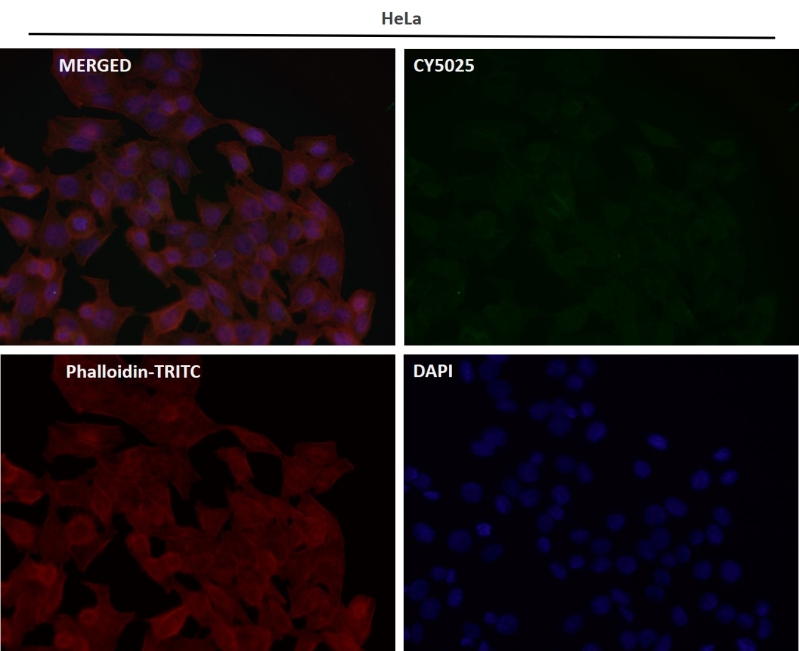




| WB | 咨询技术 | Human,Mouse,Rat |
| IF | 1/20-1/50 | Human,Mouse,Rat |
| IHC | IHC:1/100-1/200;IHF:1/50-1/200 | Human,Mouse,Rat |
| ICC | 1/50-1/200 | Human,Mouse,Rat |
| FCM | 咨询技术 | Human,Mouse,Rat |
| Elisa | 咨询技术 | Human,Mouse,Rat |
| Aliases | CAS; P120CAS; P120CTN; CTNND; p120;delta Catenin |
| WB Predicted band size | Calculated MW: 108 kDa ; Observed MW: 105 kDa |
| Host/Isotype | Rabbit IgG |
| Antibody Type | Primary antibody |
| Storage | Store at 4°C short term. Aliquot and store at -20°C long term. Avoid freeze/thaw cycles. |
| Species Reactivity | Human,Mouse,Rat |
| Immunogen | A synthesized peptide derived from human delta Catenin |
| Formulation | Purified antibody in PBS with 0.05% sodium azide,0.05% BSA and 50% glycerol. |
+ +
以下是3篇关于CTNND1(Catenin delta-1/p120-catenin)抗体的参考文献摘要概览:
---
1. **文献名称**:*"p120-catenin is essential for maintenance of barrier function and intestinal homeostasis in mice"*
**作者**:Smalley-Freed et al.
**摘要**:该研究利用特异性CTNND1抗体,在小鼠模型中证明p120-catenin缺失导致肠道屏障功能破坏和炎症反应,提示其在维持上皮细胞间粘附和肠道稳态中的关键作用。
2. **文献名称**:*"p120-catenin modulates YAP1 in basal-like breast cancer to promote metastasis via extracellular matrix remodeling"*
**作者**:Zhang et al.
**摘要**:通过免疫组化(使用CTNND1抗体)和分子实验,研究发现基底样乳腺癌中p120-catenin通过调控YAP1信号通路促进细胞外基质重塑和转移,为靶向治疗提供依据。
3. **文献名称**:*"p120-catenin isoforms differentially regulate cancer cell invasion through RhoA and NF-κB signaling"*
**作者**:Davis et al.
**摘要**:该研究采用针对不同CTNND1亚型的抗体,揭示p120-catenin通过调控RhoA和NF-κB通路影响肿瘤细胞侵袭能力的分子机制,表明亚型特异性功能差异。
---
以上文献均通过CTNND1抗体进行实验验证,涵盖其在细胞粘附、癌症转移及信号通路中的作用。如需全文链接或补充更多文献,可进一步说明。
Catenin delta 1 (CTNND1), also known as p120-catenin (p120ctn), is a member of the armadillo protein family that plays critical roles in cell-cell adhesion and signaling. It stabilizes cadherins at the plasma membrane by binding to their juxtamembrane domain, particularly E-cadherin, thereby regulating epithelial integrity. Beyond adhesion, CTNND1 modulates intracellular signaling pathways, including Wnt/β-catenin and Rho GTPase cascades, influencing cell motility, proliferation, and survival. Dysregulation of CTNND1 is linked to cancer progression, neurodevelopmental disorders, and inflammatory diseases. In cancer, it exhibits dual roles: loss of CTNND1 disrupts cell adhesion, promoting invasion, while overexpression in certain contexts drives oncogenic signaling.
Antibodies targeting CTNND1 are essential tools for studying its expression, localization, and interactions. They are widely used in techniques like Western blotting, immunohistochemistry, and immunofluorescence to assess protein levels in tissues or cell lines, often correlating with disease states. Research applications also include co-immunoprecipitation to map binding partners and elucidate molecular mechanisms. CTNND1 antibodies help identify its splice variants and post-translational modifications, which impact function. Their development has advanced understanding of CTNND1's context-dependent roles in tumorigenesis, metastasis, and synaptic plasticity, highlighting its potential as a therapeutic target or diagnostic biomarker.
×